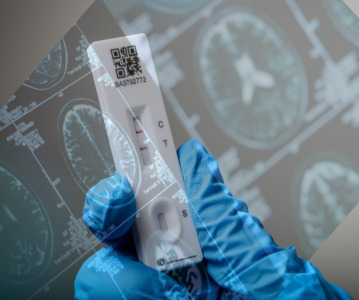Alzheimer'?s Disease Market to Witness Slight Increase by 2019

As a result of Phase III therapy LMTX potentially entering the Alzheimer’s Disease (AD) industry in the near future, the AD market will increase slightly from $3.6 billion in 2012 to $3.8 billion in 2019, forecasts business intelligence provider GBI Research.
According to the company’s latest report*, the current AD market with the available products is in serious decline. However, this could be offset by LMTX should it be approved, which is far from certain in a market characterised by one of the highest attrition rates across the industry. Such decline is due to the limited late-stage pipeline, as well as the patent expiration of all current treatments.
Despite a number of recent high-profile failures, there is still great interest surrounding AD, with 254 drugs in the discovery and preclinical stages alone. However, the number of therapies in later stages of the pipeline is somewhat limited, with a reasonable 68 molecules in Phase II, but only five in Phase III.
Dr Waldemar Ockert, Managing Analyst at GBI Research, says: “This reflects an endemic problem in AD therapeutics, as the progression rate from Phase II to Phase III, and then to filing for marketing approval after Phase III studies, is among the lowest across the entire pharmaceutical industry.
“The lack of strong potential disease-modifying therapies in the pipeline that could have a substantial impact on the market is particularly troubling, as the overall global prevalence of the disease is forecast to increase.”
Another market restraint is the fact that many drugs are tested in patients with established AD and advanced neurodegeneration.
“Most trials test products in patients with mild to moderate AD, at which stage neurodegeneration is likely to be too advanced for a potentially disease-modifying therapeutic intervention. The fact that a reasonably high proportion of patients will not respond to drug therapy increases the overall possibility of the drug not attaining statistical significance,” Ockert says.
GBI Research believes there is a severe need for definitive biomarkers, particularly for diagnosis of asymptomatic and prodromal AD, a greater understanding of the disease etiology and further research into an earlier therapeutic intervention, with amyloid beta targeting agents and other potentially disease-modifying therapeutics.
Related News
-
News Patients vs Pharma – who will the Inflation Reduction Act affect the most?
The Inflation Reduction Act brought in by the Biden administration in 2022 aims to give better and more equitable access to healthcare in the USA. However, pharma companies are now concerned about the other potential costs of such legislation. -
News CPHI Podcast Series: What does the changing US Pharma market mean for industry and patients alike?
In this week's episode of the CPHI Podcast Series Lucy Chard, Digital Editor for CPHI Online is joined by James Manser to discuss the political and market changes in the US pharma field. -
News CPHI Barcelona Annual Report illuminates industry trends for 2024
The CPHI Annual Survey comes into it’s 7th year to report on the predicted trends for 2024. Over 250 pharma executives were asked 35 questions, with their answers informing the industry landscape for the next year, spanning all major pharma marke... -
News Which 10 drugs are open to price negotiation with Medicare in the USA?
The Centres for Medicare & Medicaid Services, under the Biden administration in the USA, has released a list of the 10 drugs that will be open to price negotiations as part of the new legislation under the Inflation Reduction Act (IRA). -
News EU Medical Devices Regulation causes unintended disappearances of medical devices for children, doctors state
Doctor groups and associations have appealed to the EU to correct the EU Medical Devices Regulation law that may cause unintended shortages of essential drug and medical devices for children and rare disease patients. -
News 10 Major Drug Approvals So Far in 2023
Last year, 37 novel drugs were approved by the FDA, this was a high number for such a category, and covered many fields including oncology, demonstrating how promising further research is, and how it is only continuing to build. To date, there are alre... -
News Detecting Alzheimer's disease with a simple lateral flow test
A novel rapid diagnostic test for early-stage Alzheimer's disease has been developed using a biomarker binder from Aptamer Group along with technology from Neuro-Bio, the neurodegenerative disease experts. -
News CPHI Podcast Series: outsourcing and manufacturing trends
Listen to the CPHI Podcast Series this June to hear Gil Roth of the PBOA speak with Digital Editor Lucy Chard about the biggest trends and topics to watch in pharma outsourcing and manufacturing at the minute.
Position your company at the heart of the global Pharma industry with a CPHI Online membership
-
Your products and solutions visible to thousands of visitors within the largest Pharma marketplace
-
Generate high-quality, engaged leads for your business, all year round
-
Promote your business as the industry’s thought-leader by hosting your reports, brochures and videos within your profile
-
Your company’s profile boosted at all participating CPHI events
-
An easy-to-use platform with a detailed dashboard showing your leads and performance







